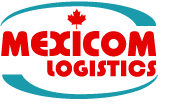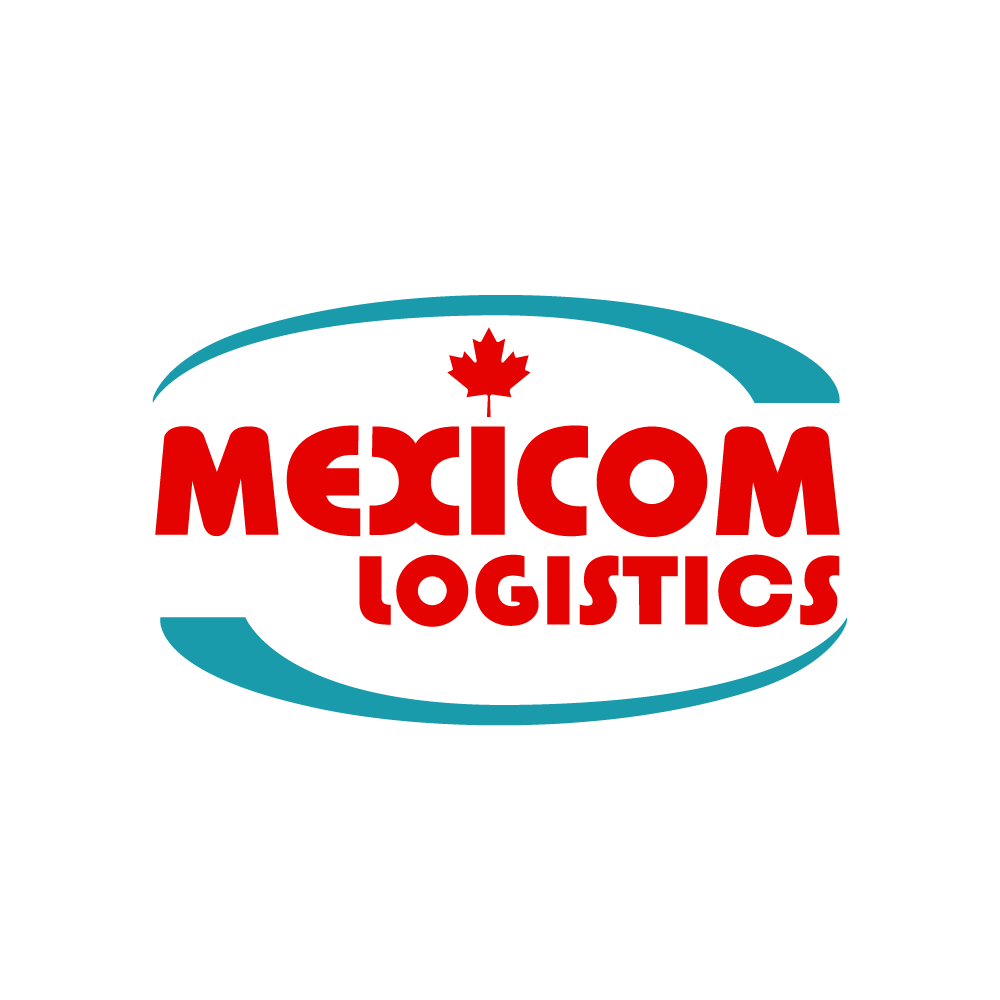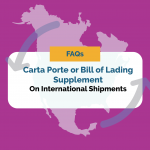Decoding the classification of the logistics service providers in North America
The most common classification of the logistics service providers in North America is based on the concept of logistics outsourcing upgrade from 1PL to 7PL. In this post, we include definitions and examples of every type of logistics service provider to help you understand their role and functions in the supply chain.
The logistics industry in North America comprises companies engaged in transporting, warehousing and logistics services. While it includes the trucking, rail, air and marine transportation modes, in this post we will focus on trucking because in North America freight moves primarily by truck.
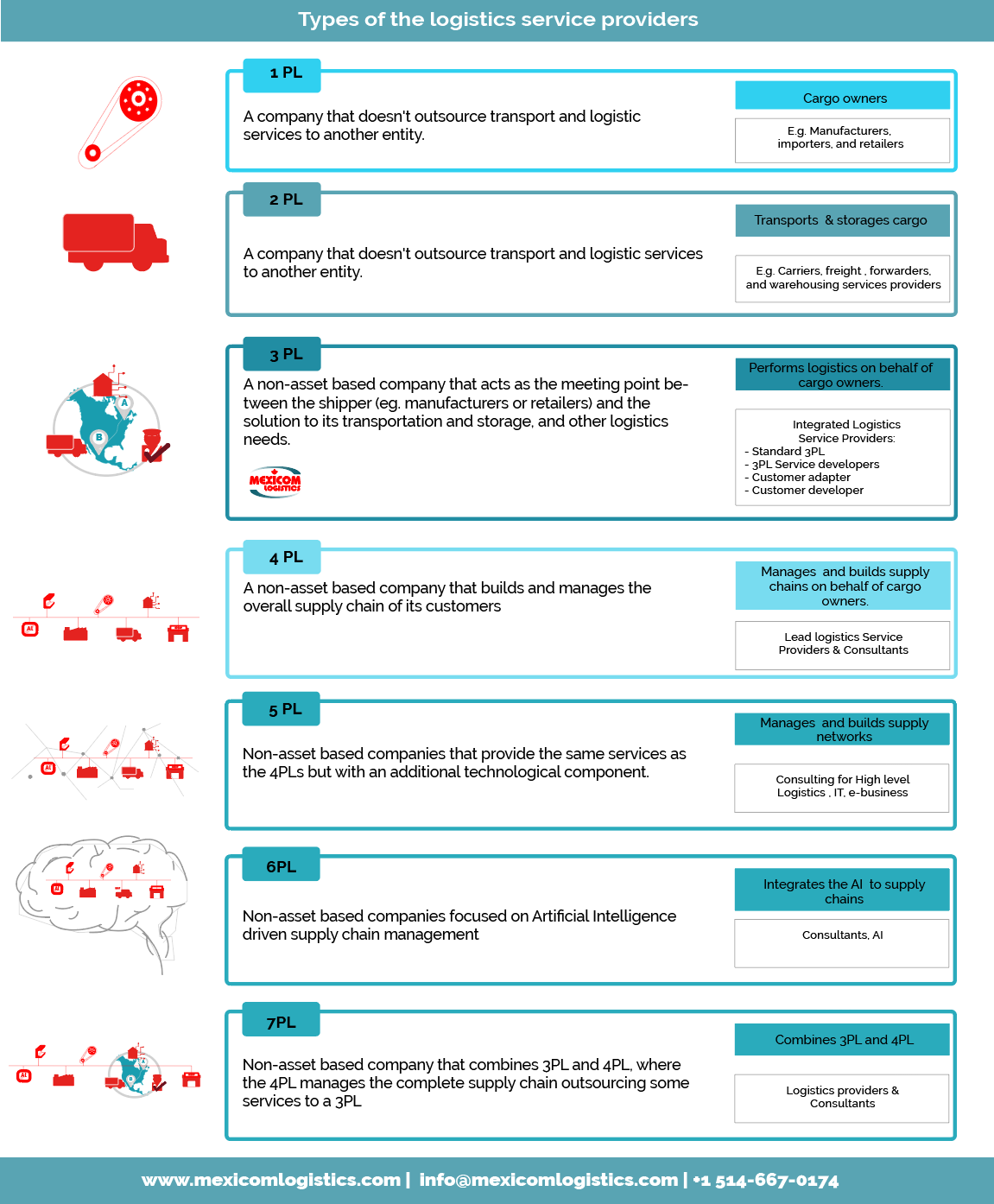
Classification of the Logistics Service Providers in North America
1PL or First Party Logistics Provider
1PL or First Party Logistics Provider refers to a company that doesn’t outsource transport and logistic services to another entity. They are cargo owners and they transport their own goods and do their own logistics.
Examples of 1PL are manufacturers, importers, and retailers.
2PL or Second Party Logistics Provider
2PL or Second Party Logistics Provider is an asset-based company that owns and operates its own fleet and can provide transportation services for other companies.
Examples of 2PLs companies are carriers, freight forwarders, and warehousing services providers. 2PLs can provide their services to 1PL, 3PL and 4PL companies.
3PL or Third Party Logistics Provider
3PL or Third Party Logistics Provider is a company that provides non-asset based transportation services, as well as warehousing and inventory management services, among others. A Third Party Logistics Provider is the meeting point between the shipper (eg. manufacturers or retailers) and the solution to its transportation and storage needs.
According to Lieb, “3PL involves the use of external companies to perform logistics functions that have traditionally been performed within the organization. The functions performed by the third party can encompass the entire logistics process or selected activities within that process”
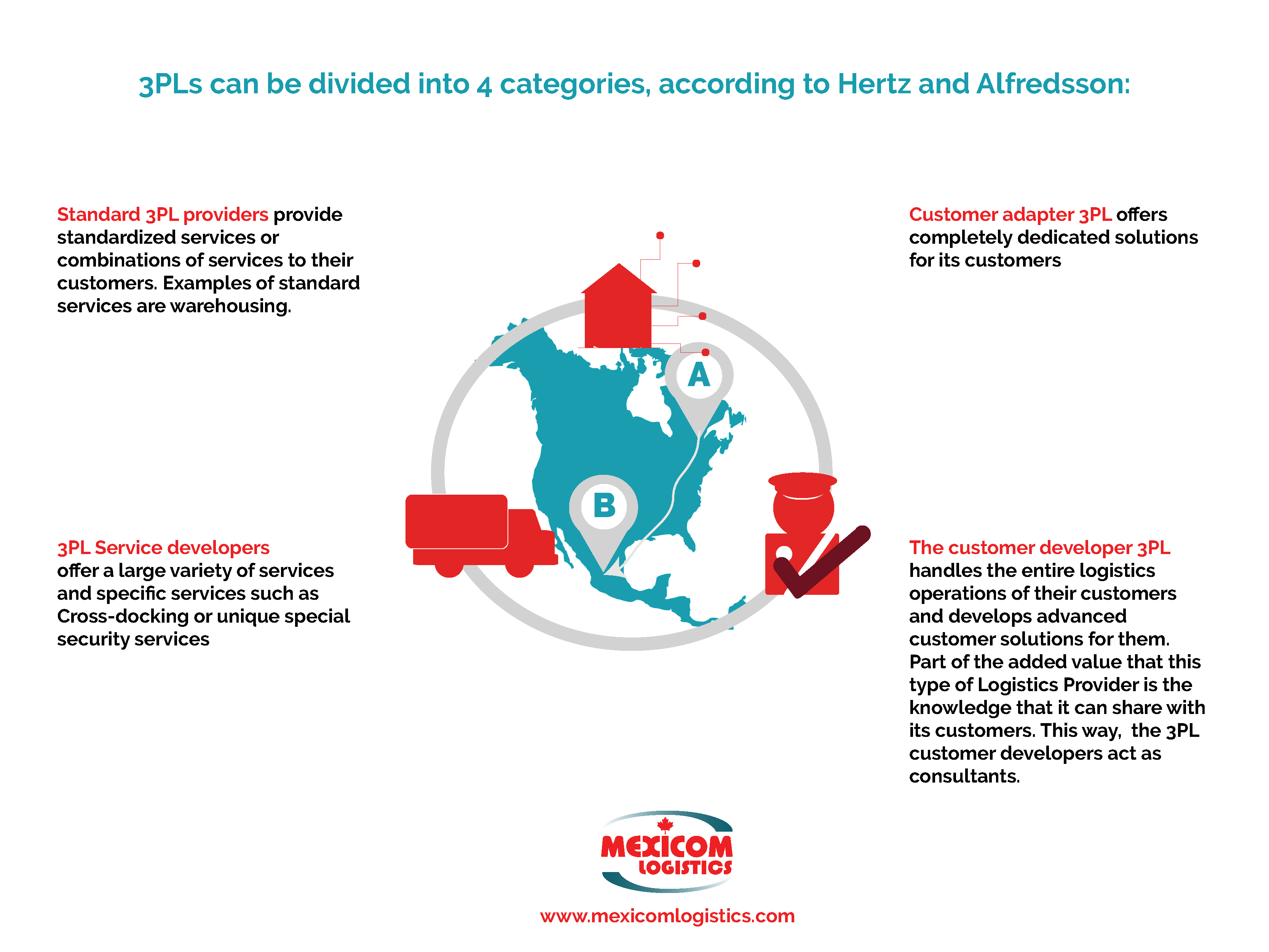
3PLs can be divided into 4 categories, according to Hertz and Alfredsson:
- Standard 3PL providers provide standardized services or combinations of services to their customers. Examples of standard services are warehousing.
- 3PL Service developers offer a large variety of services and specific services such as Cross-docking or unique special security services.
- Customer adapter 3PL offers completely dedicated solutions for its customers. For example, a plastics manufacturer requested 3PL services from Mexicom Logistics. After analyzing the customer’s needs, Mexicom Logistics opened and set up a warehouse in Hebron, Kentucky, to meet its customer’s specific requirements. Mexicom Logistics also provides the manufacturer with dedicated services such as labeling, pick and pack, LTL transportation, warehousing, and distribution management.
- The customer developer 3PL handles the entire logistics operations of their customers and develops advanced customer solutions for them. Part of the added value that this type of Logistics Provider is the knowledge that it can share with its customers. This way, the 3PL customer developers act as consultants.
As an example of a service that a Customer Developer Third-party logistics provider in North America provides to its customers, we can mention the guidance that Mexicom Logistics provides to its customers during the US-Mexico border crossing. Having more than 15 years of experience in freight shipping across the North American borders, Mexicom Logistics has become an expert on the US-Mexico border crossing process. Often times, Mexicom Logistics guides Canadian and American manufacturers and retailers during the complex freight shipping process to Mexico, sharing its knowledge with its customers. In fact, this blog is an example of an effort that Mexicom Logistics makes to share its knowledge on freight transport across North America.
4PL or Fourth Party Logistics Providers
4PL or Fourth Party Logistics Providers build and manage the overall supply chain of its customers. 4PLs have complete control of the entire supply chain, managing producers, vendors, transportation companies, warehouses, distribution centers, and retailers. Fourth Party Logistics Providers are non-asset based companies, they hire the services of 3PL and 2PL.
5PL or Fifth Party Logistics Providers
5PL or Fifth Party Logistics Providers are non-asset based companies that provide the same services as the 4PLs but with an additional technological component. 5PLs manage networks of supply chains and often times have an e-business focus.
6PL or Sixth Party Logistics Providers
6PL or Sixth Party Logistics Providers are non-asset based companies focused on Artificial Intelligence driven supply chain management.
Examples of AI applications in Supply Chains include network planning and predictive demand.
7PL or Seventh Party Logistics Provider
7PL or Seventh Party Logistics combines 3PL and 4PL, where the 4PL manages the complete supply chain outsourcing some services to a 3PL.
What type of Logistics provider is good for you?
The type of logistics provider that a company needs will depend on the company’s business model, goals and infrastructure. If your company doesn’t have the money, time, and resources to manage their own logistics needs, it is a good idea to hire a Third or Fourth Party Logistics Service Provider that can help you manage part of your supply chain or that can take total control of it.
As a general rule: no matter what type of logistics provider you choose, choose one that specializes in the region where your supply chain operates. For example, if your supply chain involves the transportation of goods between Canada, the US, and Mexico, you can contact a Logistics Service Provider specialized in North America, such as Mexicom Logistics, a 3PL with more than 15 years offering transportation, warehousing, and distribution services across North American borders.
Sources:
Click to access FULLTEXT01.pdf
Lieb, R. C. (2005). The 3PL Industry: Where It’s Been, Where It’s Going. Supply Chain
Management Review, 9(6), 20.
HANDEL WEWNĘTRZNY 2016;1(360):317-333
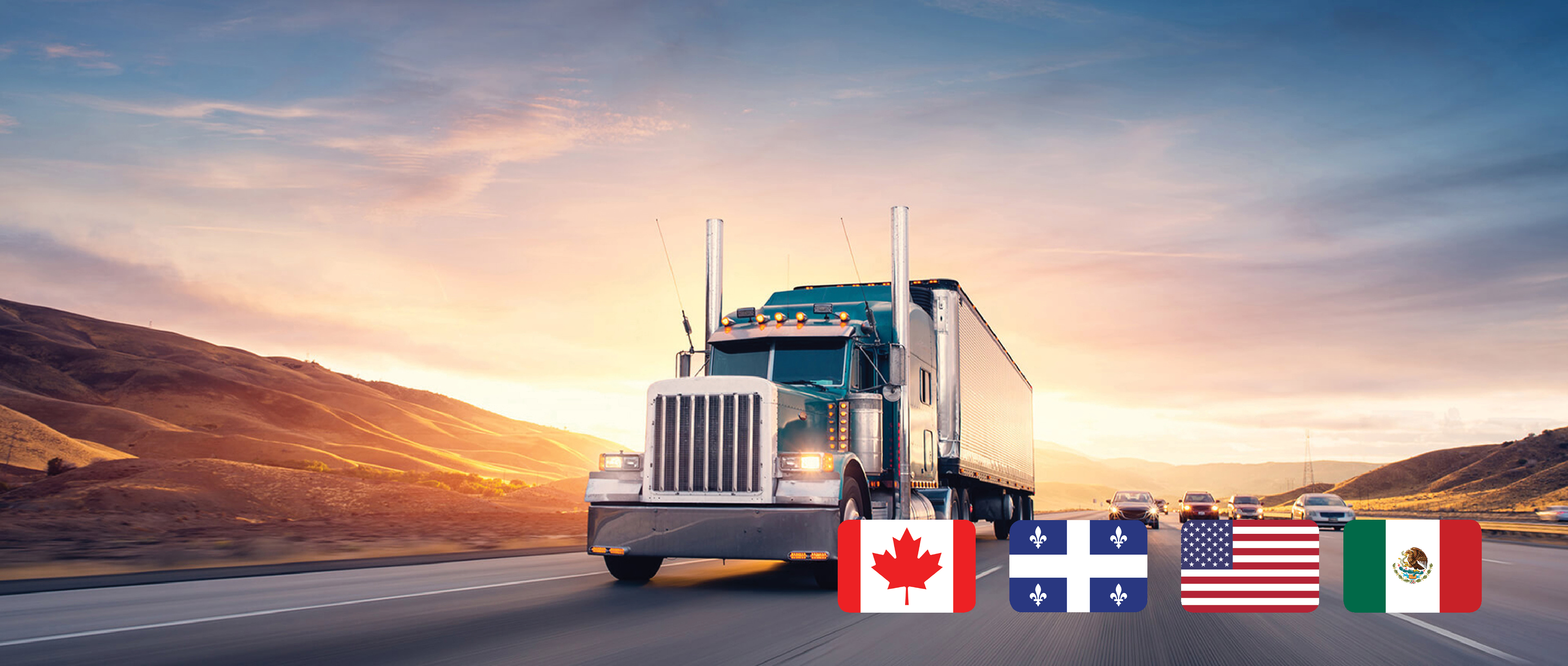
Advantages of hiring Mexicom Logistics as a Third-Party Logistics Service Provider in North America:
- Negotiates transportation rates with the carriers
- Great knowledge of reliable carriers in North America
- Consolidates and deconsolidates cargo in Laredo
- Offers Cross-Docking services in Laredo
- Provides cargo insurance to protect the goods transported in Mexico, the US, and Canada.
- Recommends the type of truck in which your cargo should be transported and books the truck to transport your cargo on the day and time, you need it.
- Organizes and manages the cross-border crossing of your cargo
- High knowledge of the US-Mexico border crossing process.
- Guides you through the transportation of your cargo, requesting the documents you require for the transportation and border crossing.
- Advises you on the rules and procedures for importing and/or exporting goods to Mexico, the USA, and Canada.
